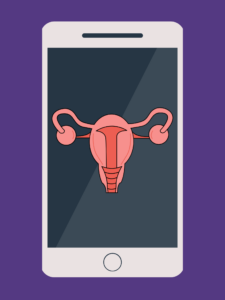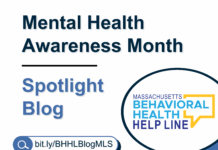The Digital Traces of Pregnancy: Privacy and Reproductive Rights
 Claire Lobdell, Librarian & Archivist at Greenfield Community College
Claire Lobdell, Librarian & Archivist at Greenfield Community College
On May 2, 2022, Politico released a draft of the majority opinion in Dobbs v. Jackson Women’s Health Organization, indicating the Supreme Court is planning to overturn Roe v. Wade this summer. In the event Roe is overturned, decisions of whether and how to allow abortion will revert to the states–26 of which are likely to ban abortion. The surveillance capabilities of private and state entities have expanded dramatically since 1973 (i.e. when Roe v. Wade was decided). People need to know what those capabilities are in order to protect themselves from those consequences.
Massachusetts legislators passed the ROE Act in 2020, which enshrines the right to abortion access in state law. Even so, laws in other states affect us and our patrons. We and our loved ones travel, go to school in different states, relocate for jobs, and generally wish to move around the country in safety. In addition, several state legislatures are considering prosecuting people who help pregnant people travel to other states for abortions (a 2019 Georgia law, since struck down, left open this possibility). This means that in the near future, non-resident, walk-in MA library patrons may be facing prosecution in their home states.
While I am writing specifically about privacy and reproductive rights, the same risks and risk prevention techniques apply to numerous situations, particularly to people who are being stalked or experiencing domestic violence. Library workers can use these techniques to help all patrons conceptualize and protect their privacy and libraries should have materials on hand, in multiple languages, about digital privacy.
Some background
- Pregnant people have already been prosecuted for their actions during pregnancy, including for getting shot in the abdomen during a fight, and for taking a single valium.
- People in the U.S. have already been prosecuted for miscarrying. It is also very difficult for medical professionals to distinguish between natural miscarriage and medication abortions. Where abortion is banned, hospital workers’ biases come into play when they decide who to refer to the police: is the person poor? minoritized? young? a sex-worker?
- Law enforcement have attempted to use DNA to identify the parents of fetal remains.
- Companies have been data mining consumer purchases for more than a decade to identify people likely to be pregnant.
- Facebook and other social media companies collect a HUGE amount of data about users’ activities, both from posts and interactions with Facebook itself, and from other apps that are built on Facebook software. One period-tracking app shared unencrypted data with Facebook that users had entered–including about when the user was ovulating and when they had sex.
- At least one marketing company has used location-based “geofencing” to send advertisements for anti-choice groups including crisis pregnancy centers and evangelical adoption agencies, to people in abortion clinic waiting rooms.

Determining one’s risk profile
There is a technique that originally comes from the information security field, called Threat Modeling, which asks a series of questions to determine 1) the assets you have that you wish to protect (these can be tangible, like money; virtual, like text messages; legal, such as the custody of one’s children; or embodied, as in one’s own physical health); 2) what or who poses a threat to those assets; 3) how likely you are to have to protect those assets; 4) how bad are the consequences if you fail to protect them; 5) and what are you willing to do to protect those assets. We’ll get to the answer to the last question in the next section.
To answer the questions above in terms of reproductive freedom, you can ask some additional questions:
- Where do I leave evidence of my reproductive choices? In text messages? Email? Facebook messenger? Credit card purchases? Apps? GPS data about where I travel? Conversations with others?
- Who is in my circle of trust? Do I have a safe living situation? Can I trust my partner or family? For example, in the case of Texas’s S.B. 8 law, which criminalizes helping a pregnant person obtain an abortion after 6 weeks of pregnancy, private citizens can get a $10,000 bounty for turning in someone violating the law. The people most likely to know who is obtaining an abortion are those close to a pregnant person.
- What are the laws where I live?
Steps to take to protect oneself
The threats I describe above are frightening, Orwellian, dystopian–take your pick of adjectives. However, there are real things a pregnant person can do to protect themself, which I will divide into lower tech and higher tech steps. Not all of these will be applicable to every situation or every person’s risk profile; they are dependent on an individual’s situation, location, and security. For example, Black and brown people are disproportionately policed and surveilled and the maternal mortality rate for pregnant Black people is more than three times that of white people.
Lower tech steps
- Narrow your circle of trust to people you know have got your back.
- Pay cash for anything pregnancy-related and don’t use a customer loyalty card (e.g. a CVS card) when making those purchases. Credit cards and customer loyalty cards tie purchases to one’s identity.
- Turn off location tracking on your mobile device, and don’t bring a smartphone to a clinic (especially in a place where abortion is illegal). This will help to prevent geofencing, GPS geolocation, and stingray devices/cell site simulators from identifying you por intercepting your communications.
- Where abortion is illegal, park away from clinics and walk or take public transit. Many cars have built-in GPS.
- Don’t have sensitive conversations in a room with a smart speaker. Smart speaker records can and are subpoenaed by law enforcement.
Higher tech steps
- Use the TOR browser, which masks your web searching, to search for anything sensitive. There are also mobile versions of the browser for Mac and Android.
- Don’t reuse passwords between accounts or link accounts (i.e. sign into multiple services with your Google, Facebook, or Amazon credentials), and enable two-factor authentication on any services that you can.
- Especially if you have reason to fear the people you live with, turn off biometric authentication on your mobile devices (i.e. using a fingerprint or faceprint to sign in).
- Use an encrypted messenger such as Signal, with disappearing messages enabled, when sending texts.
People who can help
In the midst of uncertainty and collapsing freedoms, it is important to note that there are numerous organizations and people committed to helping individuals and communities preserve reproductive rights. A very abbreviated list follows.
- Abortion Travel Funds https://abortionfunds.org
- ○ Abortion Rights Fund of Western Massachusetts https://www.arfwm.org/resources
- ○ Eastern Massachusetts Abortion Fund https://emafund.org/
- ○ The Jane Fund (Central Massachusetts) https://www.janefund.org/
- Plan C Pills (Sponsored by National Women’s Health Network; provides abortion medications through the mail) https://plancpills.org
- Digital Defense Fund (Digital security for the abortion access movement) https://digitaldefensefund.org
- Women on Waves (Dutch NGO that provides safe abortion services in international waters): https://www.womenonwaves.org


